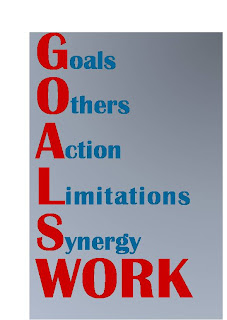
I wanted to share some of the feelings engendered during our trip to the Holy Land. I've explained in previous blogs that I am a man of faith. I believe in Jesus Christ. I believe he is the literal Son of God. I believe that he atoned for our sins and that he broke the bands of death through His resurrection. You can imagine how thrilled I was to visit the place of His earthly ministry.
Our trip generated multiple memories. I cannot prioritize them. So, I will attempt to display the kaleidoscope of images I remember.
People surrounded us from all over the world. We encountered tours from Italy, Brazil, Ecuador, India, Pakistan, China, Japan, and more everyday. They came to worship, to honor, and to experience communion with their Savior. Their faith and sacrifice amazed me.
We sang Christmas Carols in a cave in the Shepherds' Fields just outside of Bethlehem. The resonance of the cave echoed the resonance of the spirit. We felt closer to the Babe born in Bethlehem.
We sat in the Garden of Gethsemane among olive trees similar to those when he went their one fateful night. Our faith sets great store on this Garden. We hold it in equal stature to Golgotha and the Empty Tomb. We believe that, among these olive trees, he took upon him the punishment for our transgressions. We believe that the excruciating pain caused him to "tremble and bleed at every pore." We believe that through his Grace, Charity, and Mercy; he gave us the opportunity to return to our Heavenly Father clean and pure. Our choice is whether we accept His sacrifice, repent, and keep His commandments. If we do so, He awards eternal life. All of this we pondered in the Garden.
We visited the Garden Tomb rather than the more popular Church of the Resurrection. Peace pervades the garden surrounding the tomb. Our guide first took us to the overlook of a skull on the mountainside. We contemplated the crucifixion of the Lamb of God. We pondered his forgiveness to those who "know not what they do". We contemplated the anguish when even His father withdrew so that no one could accuse Him of special privilege.
At the tomb, mere yards from Golgotha we met outside a simple door in the rock. Two small rooms proceed from the door. The tomb remains empty. We contemplated the words of the hymn. "He is risen. He has burst His three-day prison. Let the whole wide world rejoice. Death is conquered. Man is free! Christ has claimed the victory." I remained grateful for a faith that does not rely on a cross, but instead focuses on an empty tomb.
We basked in the peace found around the Sea of Galilee. We grew to understand why he loved the people and the area around that surprising small body of water. My wife pointed out that as the Creator of this world, he must have prepared that special spot for peace, renewal, and sanctuary. We fell in love with the area.
In summary, our trip allowed us to visit his places, to see his vistas, and to draw closer to him. The trip did not increase my faith in Jesus Christ. I do not know more than before that He lives. I knew of His divinity before I visited the Holy Land. I knew that, because of His atonement, I will see Him again. The trip, however, allowed me to ponder it even more.
I would recommend everyone try to make the pilgrimage.











